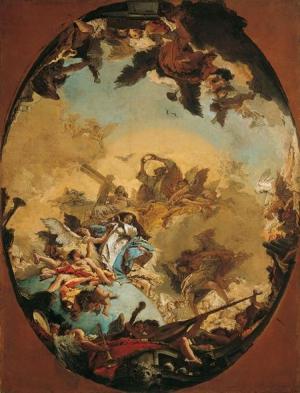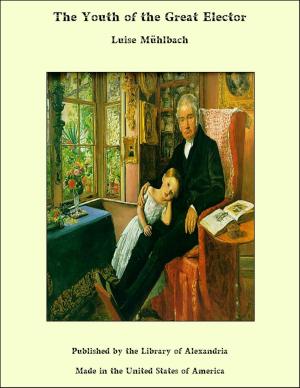Ekkehard: A Tale of the Tenth Century Complete)
Nonfiction, Religion & Spirituality, New Age, History, Fiction & Literature| Author: | Joseph Victor von Scheffel | ISBN: | 9781465544568 |
| Publisher: | Library of Alexandria | Publication: | March 8, 2015 |
| Imprint: | Language: | English |
| Author: | Joseph Victor von Scheffel |
| ISBN: | 9781465544568 |
| Publisher: | Library of Alexandria |
| Publication: | March 8, 2015 |
| Imprint: | |
| Language: | English |
The success which "Um Szepter und Kronen" has met with on the Continent justifies an English translation. The author, who writes under the nom de plume of Gregor Samarow, is, if report speak truly, himself one of the characters described in his work as the friend and confidant of the chivalrous and unfortunate sovereign who is its principal hero. This explains the ease and familiarity with which the various courts and cabinets are described, the author's personal acquaintance with the statesmen and diplomatists he has pourtrayed, and it accounts for the value of the work as a clever and interesting political sketch. It is as a political sketch, and not as an ordinary novel, that it is offered to this country. Although the great events of 1870 and 1871 have almost swept from memory the history of preceding years, yet the struggle of 1866--the Seven Weeks' War--must ever be memorable; it was the prelude to the great Franco-German War, and its immediate result was that immense increase in the power of Prussia which placed her in her present position of supreme leader in Germany. CHAPTER I. BISMARCK AND MANTEUFFEL. About nine o'clock on a dark April evening in the year 1866, a Berlin cab drove up the Wilhelmsstrasse with the trot peculiar to those vehicles, and stopped between the two lamps illuminating the door of No. 76, the house of the Minister for Foreign Affairs. The ground floor of this long two-storeyed house was well lighted up, and any one who peeped through the green blinds could see into many office-like rooms, well-filled with industrious writers, notwithstanding the lateness of the hour. The windows of the upper storey were only faintly lighted here and there
The success which "Um Szepter und Kronen" has met with on the Continent justifies an English translation. The author, who writes under the nom de plume of Gregor Samarow, is, if report speak truly, himself one of the characters described in his work as the friend and confidant of the chivalrous and unfortunate sovereign who is its principal hero. This explains the ease and familiarity with which the various courts and cabinets are described, the author's personal acquaintance with the statesmen and diplomatists he has pourtrayed, and it accounts for the value of the work as a clever and interesting political sketch. It is as a political sketch, and not as an ordinary novel, that it is offered to this country. Although the great events of 1870 and 1871 have almost swept from memory the history of preceding years, yet the struggle of 1866--the Seven Weeks' War--must ever be memorable; it was the prelude to the great Franco-German War, and its immediate result was that immense increase in the power of Prussia which placed her in her present position of supreme leader in Germany. CHAPTER I. BISMARCK AND MANTEUFFEL. About nine o'clock on a dark April evening in the year 1866, a Berlin cab drove up the Wilhelmsstrasse with the trot peculiar to those vehicles, and stopped between the two lamps illuminating the door of No. 76, the house of the Minister for Foreign Affairs. The ground floor of this long two-storeyed house was well lighted up, and any one who peeped through the green blinds could see into many office-like rooms, well-filled with industrious writers, notwithstanding the lateness of the hour. The windows of the upper storey were only faintly lighted here and there















